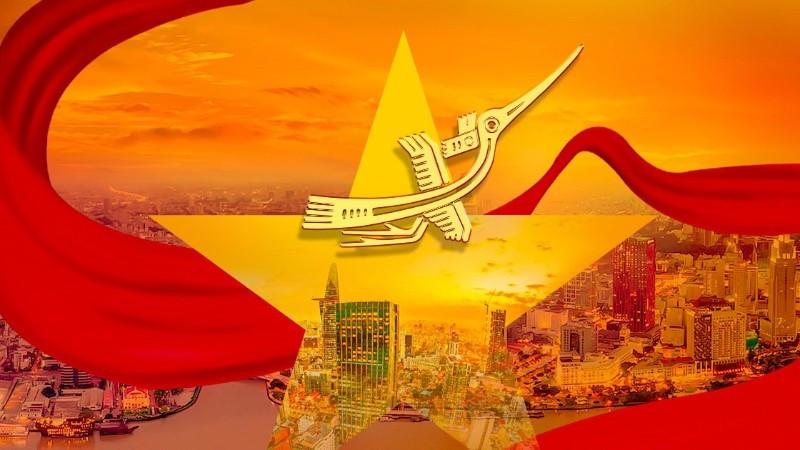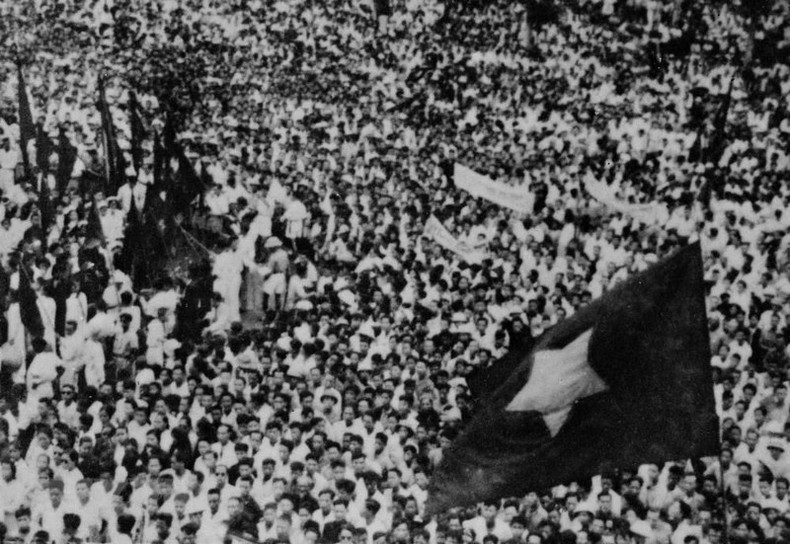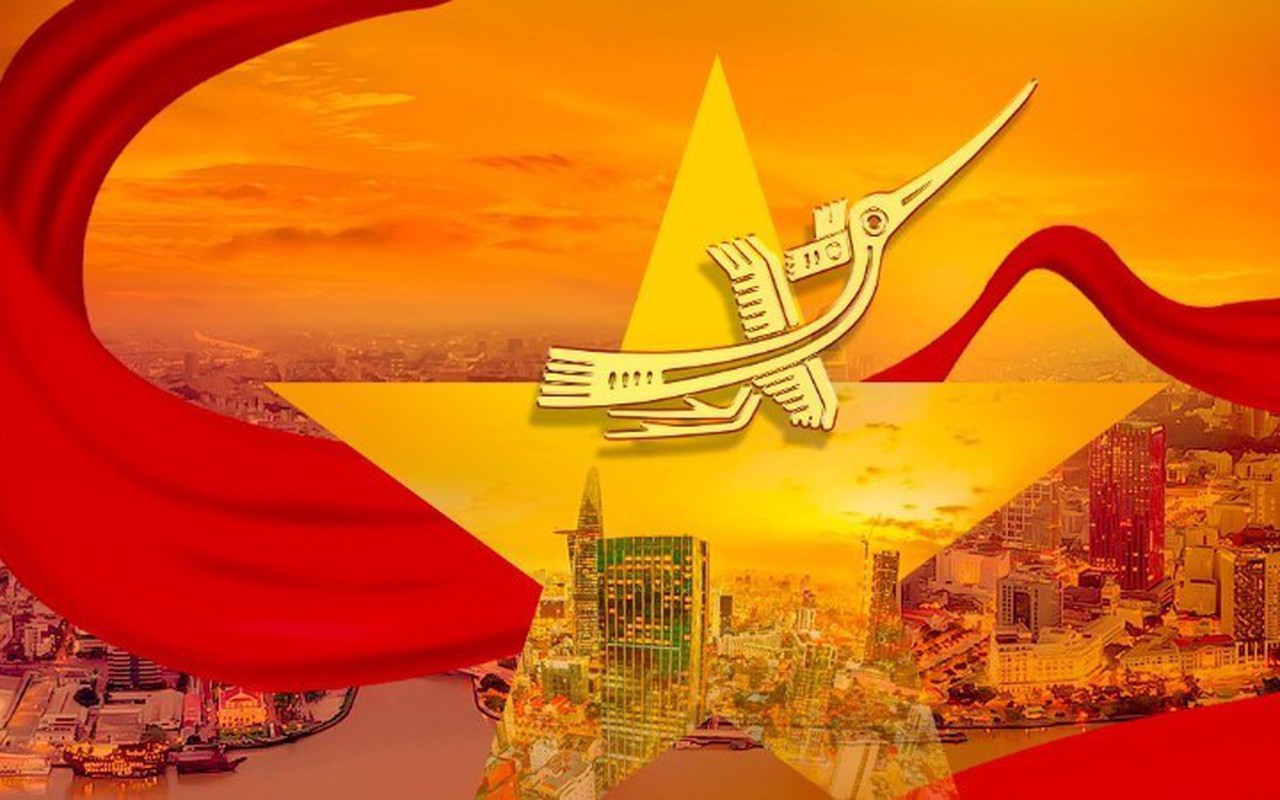
The goal of the era of national rise is developing Viet Nam into a strong country with prosperous people, a socialist society, standing shoulder to shoulder with the world’s great powers
The goal of the era of national rise is developing Viet Nam into a strong country with prosperous people, a socialist society, standing shoulder to shoulder with the world’s great powers.
On September 2, 1945, leader Ho Chi Minh read the Declaration of Independence, officially announcing to the compatriots and the international community the birth of the Democratic Republic of Viet Nam, opening a new era of national independence and freedom, the beginning of Viet Nam’s glorious eras.
Bathed in the golden sunlight of that historic autumn at Ba Dinh Square, President Ho Chi Minh depicted the splendid new era of the nation: “Our people have broken the colonial chains which for nearly a century had fettered us from establishing an independent Viet Nam. Our people have also overthrown the monarchic regime of several millennia to establish a democratic republic.” (1)
From a colony unmarked on the world map, from a backward feudal regime in the East, Viet Nam declared to the world its status as an independent sovereign nation, a state of the working people.
Reflecting on the Vietnamese revolution, the Party's platform for national construction in the transitional period to socialism affirms: “The victory of the August Revolution of 1945 shattered the yoke of colonialism and feudalism, established the Democratic Republic of Viet Nam, ushering our nation into an era of independence and freedom.” (2)
To safeguard independence and freedom in this new era, the Vietnamese armed forces and people had to endure prolonged wars, arduous struggles, and great sacrifices, ultimately achieving glorious victories against colonialist, imperialist, and reactionary international forces; concurrently, they worked diligently to build socialism in the North.
By the Spring of 1975, the Ho Chi Minh Campaign achieved complete victory, liberating the South and reunifying the country, with the entire nation advancing towards socialism.
The strategic goals and missions of the era of independence and freedom were fully realised.
The victory of the August Revolution of 1945 shattered the yoke of colonialism and feudalism, established the Democratic Republic of Viet Nam, ushering our nation into an era of independence and freedom
Viet Nam's victory bore not only national significance but also global historical stature, representing an era of peace, national independence, democracy, and socialism.
As history has shown since the founding of the Democratic Republic of Viet Nam in 1945, the process of decolonisation spread worldwide, dismantling the colonial system by the end of the 20th century. More than a hundred independent countries emerged, deciding their own development paths, many opting for socialism. The political map of the world was redrawn with numerous pivotal trends.
Continuing the era of independence and freedom, the Doi Moi (Renewal) has created the era of innovation and development for the Vietnamese nation.
The nearly 40 years of Doi Moi since 1986 have brought great achievements of historic significance: overcoming major challenges at the end of the 20th century; resolving severe socio-economic crises; exiting the underdevelopment trap; and deepening international integration.
Viet Nam has recorded remarkable progress: GDP has increased by more than 97 times, becoming one of the world’s top 40 economies by GDP size, one of the top 20 global foreign trade markets, and a leading country in terms of the Human Development Index (HDI) and innovation among countries with similar economic development levels.
Viet Nam has established as a reliable partner and active member in the international community, holding strategic and comprehensive partnerships with 37 countries.
It has become an indispensable example in many fields of global development. Never has our country had such fortune, potential, international standing, and prestige as it does today. (3)

The world today admires heroic Viet Nam for its struggle against colonialism and imperialism, for national liberation, and building a new social regime; and respects the success of its Doi Moi process, which has brought distinctive achievements to the nation. Viet Nam serves as a vivid example for developing countries rising to new heights.
Viet Nam’s renewal success is a valuable contribution both theoretically and practically to the recovery and development of the international communist movement and the socialist construction worldwide.
The epochal achievements of the era of independence and freedom, and the great historic accomplishments of renewal and development, create a firm foundation for Viet Nam to enter the new era — the era of national rise.
“The goal of the era of national rise is developing Viet Nam into a strong country with prosperous people, a socialist society, standing shoulder to shoulder with the world’s great powers.”
“The top priority in this new era is to successfully achieve strategic targets: by 2030, Viet Nam aims to become a developing country with modern industry and upper-middle income; by 2045, it aims to become a socialist developed country with high income; it also aims to strongly awaken national pride, the spirit of confidence, self-reliance, resilience, patriotism, and aspiration for national development, firmly combining the power of the nation with the strength of the times." (4)
Throughout the thousands of years of national history, and most recently in the revolutionary history under the Party’s leadership since 1930, the entire Party and people are deeply proud of the glorious victories, including many miraculous strides that turned what seemed impossible into reality, opening Viet Nam’s radiant eras in the age of Ho Chi Minh.
A new era has begun — the era of national rise when Viet Nam advances to the heights of a developed nation firmly on the path of national independence and socialism
The August Revolution of 1945 opened the era of independence and freedom; inscribed Viet Nam’s victory over colonialism in the world political lexicon; established national independence linked with socialism as a contemporary global trend; and contributed to the revolutionary currents of the 20th century.
The era of renewal and development portrays Viet Nam’s resolute and creative steps, even facing severe challenges, opening a bright future for industrialisation and modernisation in a prosperous, strong, democratic, just, and civilised nation.
With many opportunities, advantages intertwined with difficulties and challenges ahead, a new era has begun — the era of national rise when Viet Nam advances to the heights of a developed nation firmly on the path of national independence and socialism.
The glorious paths travelled and promising steps ahead all originate from the Spring of the Party’s establishment in 1930; the image of the August Revolution’s autumn of 1945, the glorious Dien Bien Phu Victory that resonated worldwide in 1954, the Great Spring Victory of 1975; and multiplied manifold into the fortune, potential, and prestige of Viet Nam through nearly 40 years of Doi Moi (Renewal).
Reflecting on the 80 years since the August Revolution and National Day of September 2,1945, it is clearer than ever the radiant process of Viet Nam from a backward colony to national independence, human freedom, and people’s happiness; from hardship and challenges to timely renovation and continuous rising to new steps of development and full aspiration for prosperity and civilisation in the new era.
(1) Ho Chi Minh: Complete Works, National Political Publishing House - Truth, 2011, Vol. 4, p. 3.
(2) Platform for Nation-Building in the Transitional Period to Socialism, 2011 Supplement
(3) Documents of the 13th National Congress
(4) New Era, Era of National Rise (Communist Review)
Assoc. Prof., Dr. NGUYEN VIET THAO
Member of the Central Theoretical Council, Former Deputy Director of the Ho Chi Minh National Academy of Politics


